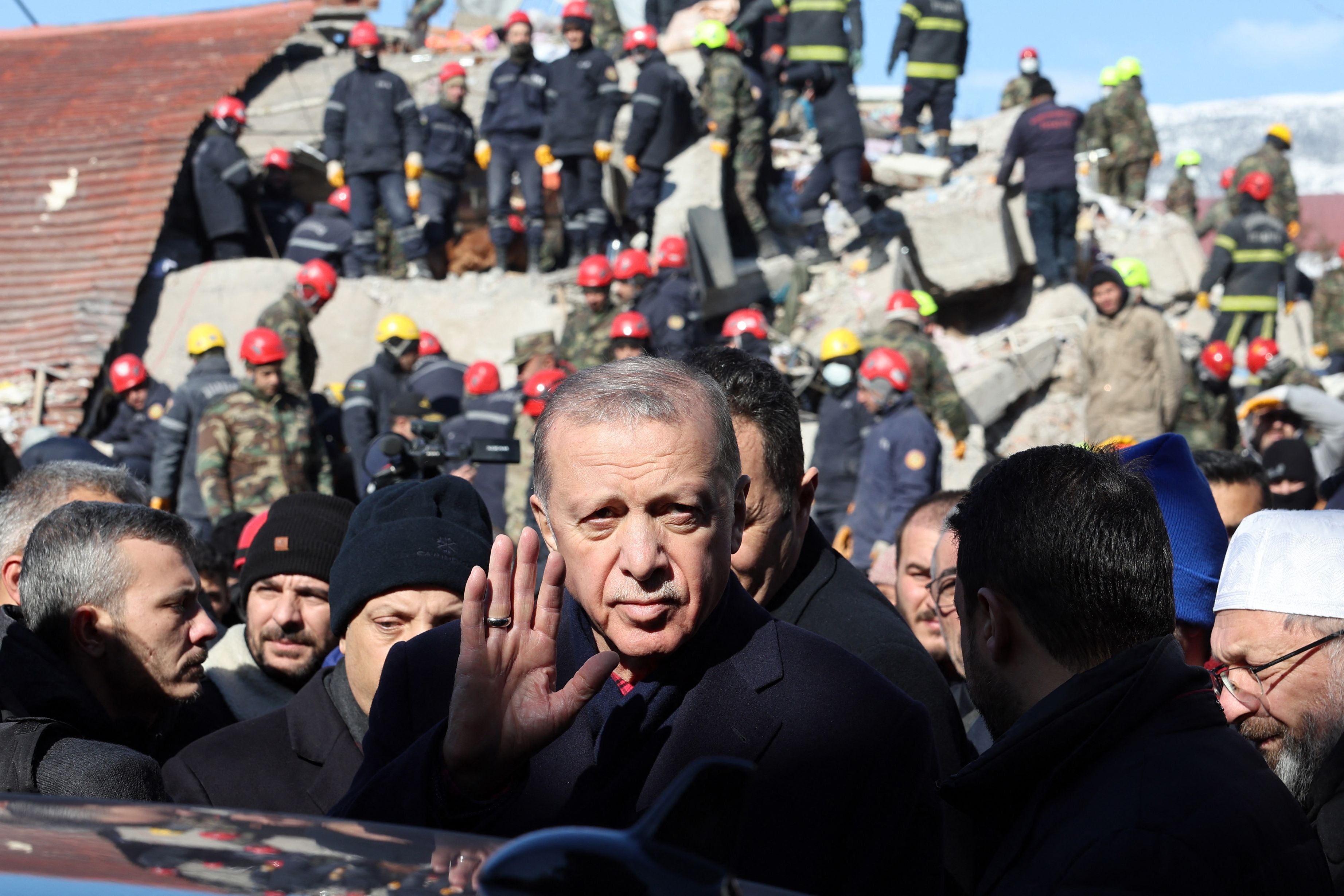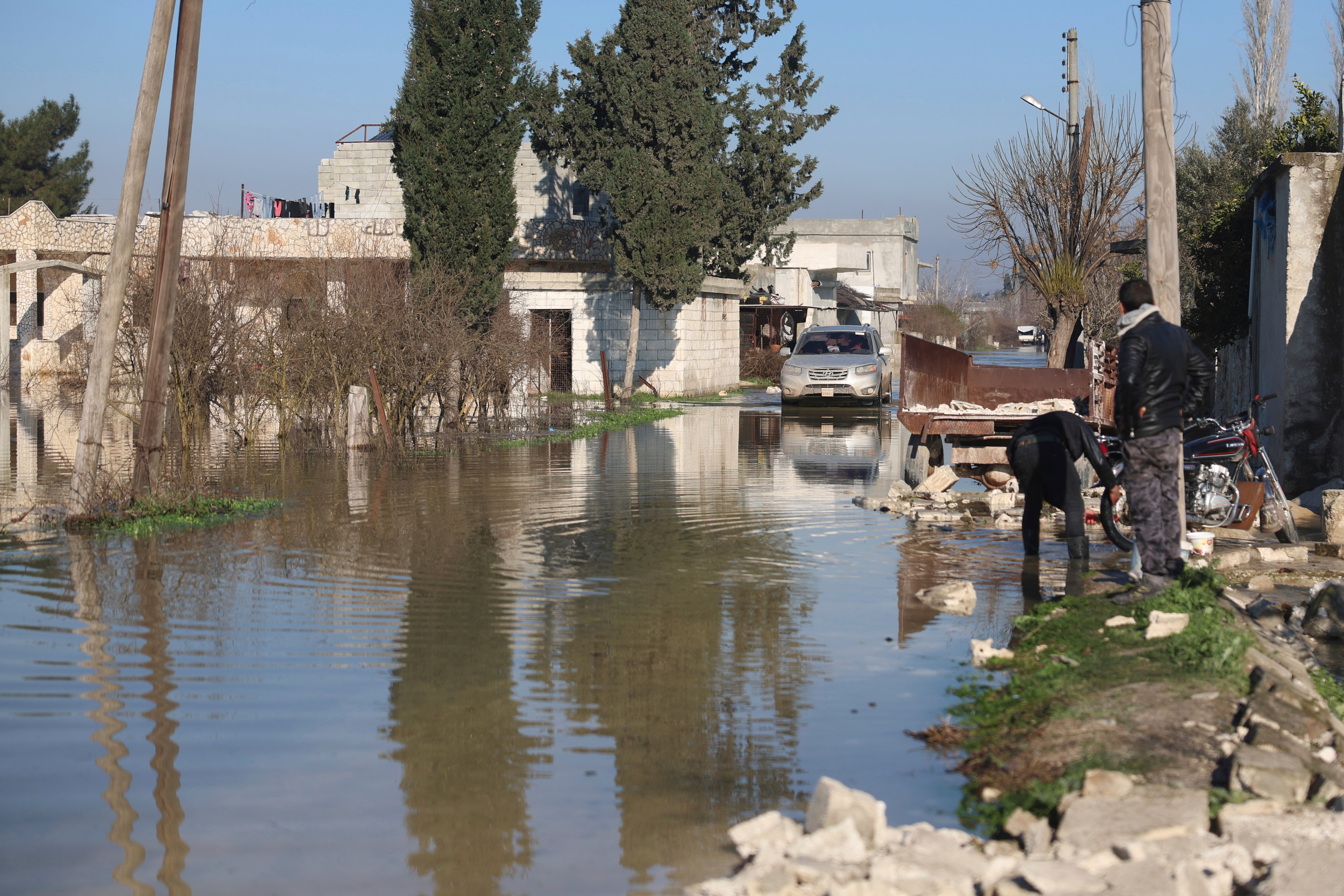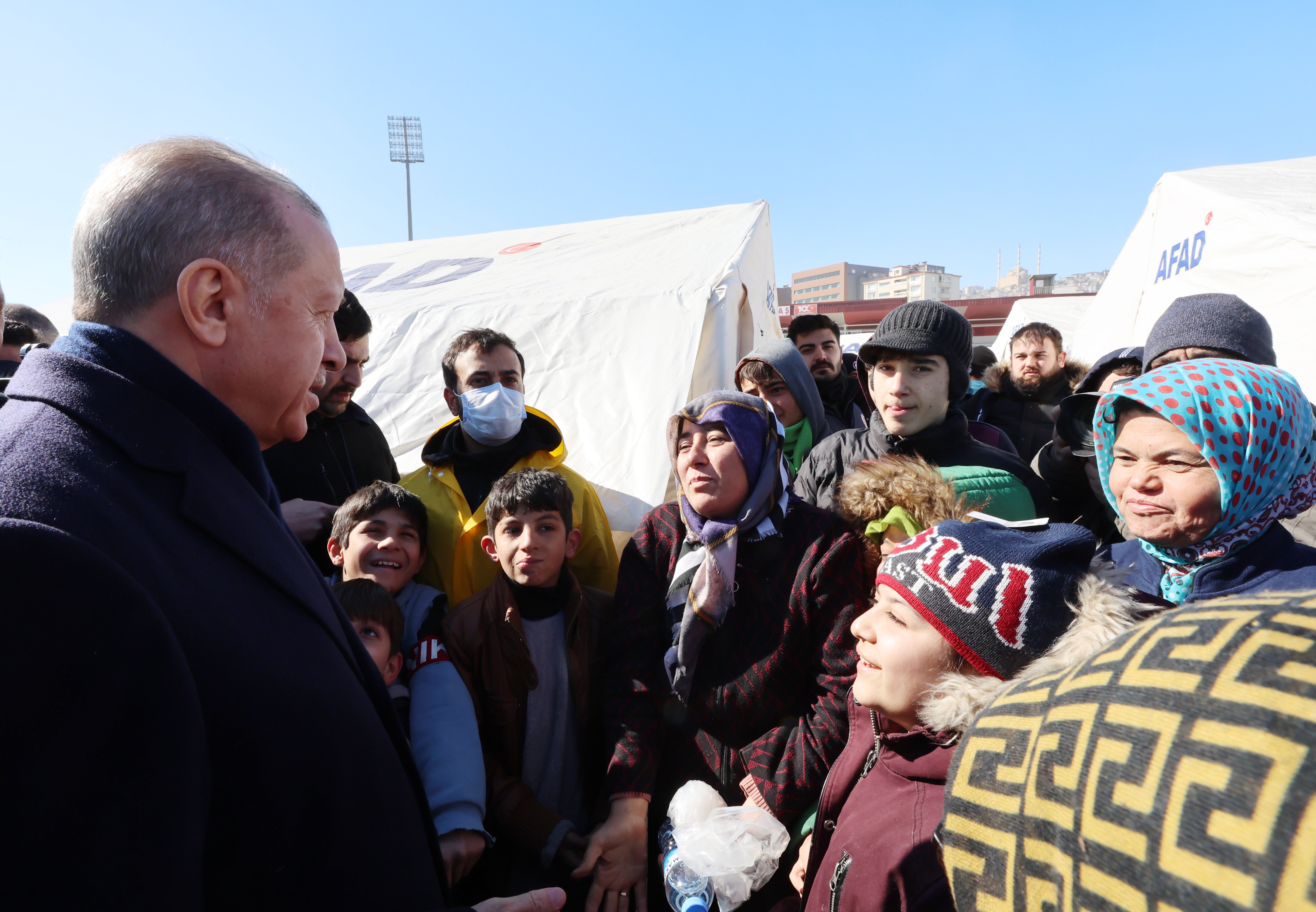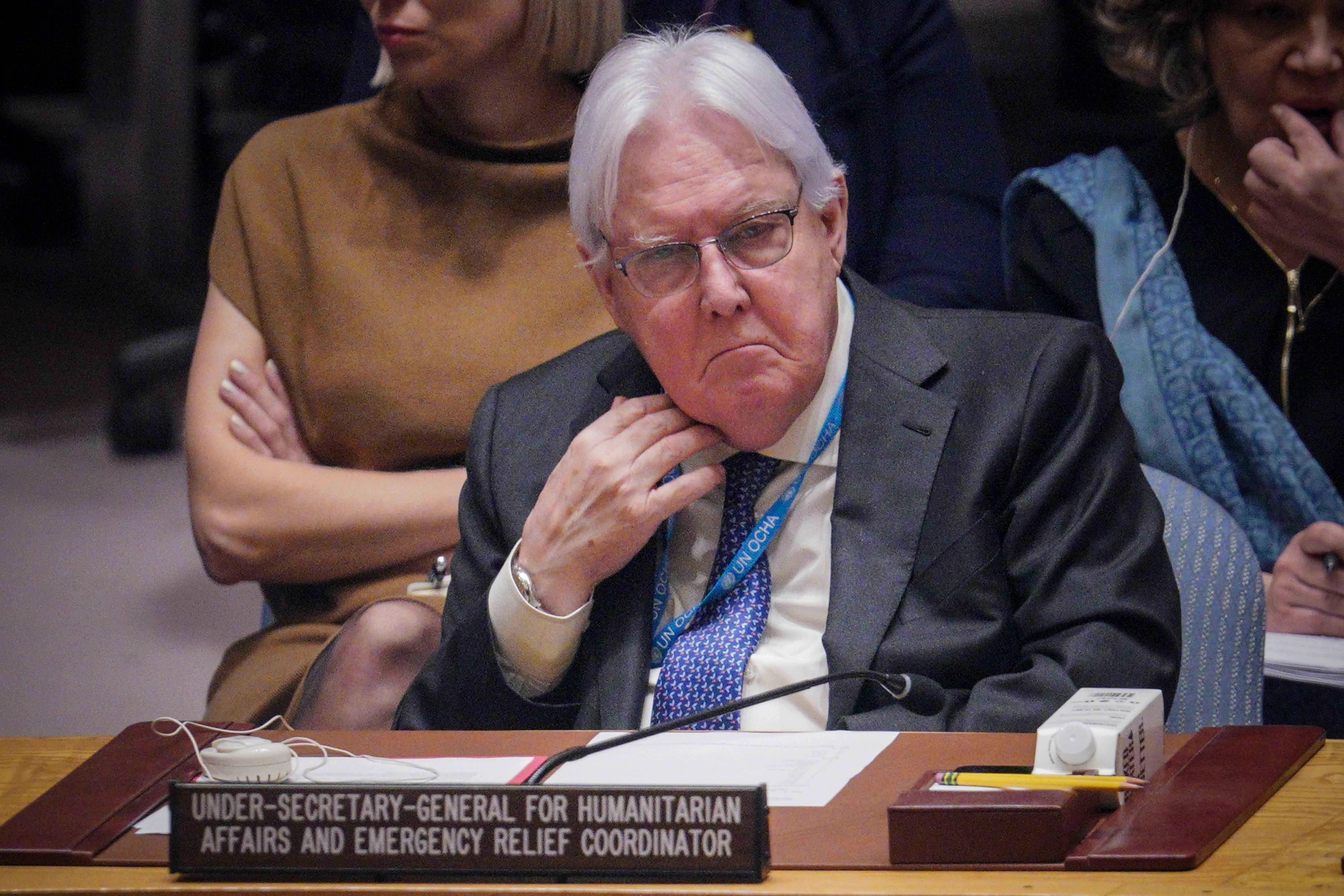Turkey-Syria earthquake- latest: Desperation grips Syria as food supplies start to run out
Death toll passes 21,000 as hundreds still trapped under mountains of rubble
Your support helps us to tell the story
This election is still a dead heat, according to most polls. In a fight with such wafer-thin margins, we need reporters on the ground talking to the people Trump and Harris are courting. Your support allows us to keep sending journalists to the story.
The Independent is trusted by 27 million Americans from across the entire political spectrum every month. Unlike many other quality news outlets, we choose not to lock you out of our reporting and analysis with paywalls. But quality journalism must still be paid for.
Help us keep bring these critical stories to light. Your support makes all the difference.
Reeling from the aftermath of the devastating earthquake, Syrians are now facing starvation as food stocks are beginning to run out in the northwest of the country.
The World Food Programme (WFP) said on Friday it was running out of stocks and called to open more border crossings from Turkey after both countries were ravaged by the natural disaster.
“Northwest Syria, where 90 per cent of the population depends on humanitarian assistance, is a big concern. We have reached the people there, but we need to replenish our stocks,” Corinne Fleischer, WFP Regional Director in the Middle East, Northern Africa and Eastern Europe, told reporters.
“We are running out of stocks and we need access to bring new stocks in. The border crossing is open now, but we need to get new border crossings open.”
The Independent is asking readers to donate to its appeal, with all funds raised going to the Disasters Emergency Committee, which brings together leading UK aid charities to help with the search and rescue effort and provide vital medicines, clean water and temporary accommodation for survivors.
Hundreds of aftershocks recorded
Almost 650 aftershocks have been recorded since the two 7.8 and 7.6-magnitude earthquakes struck on Monday, Turkey’s disaster management agency AHAD has said.
The after effects have made it harder for rescue workers to find any survivors after the main strike as the tremors follow on around the same area.
The aftershocks are caused by the Earth’s crust adjusting after the main shock.
Aid workers describe ‘grim’ devastation

Aid workers on the ground in Turkey and Syria have described the "grim" devastation caused by this week's earthquake as they called on the British public to donate to a new charity appeal.
Salah Aboulgasem, who is working for the charity Islamic Relief in Gaziantep, southern Turkey, arrived 14 hours after the earthquake struck 21 miles east of the city.
He said: "I've been working in the humanitarian space for more than 15 years. I've been to many disaster zones and I've been to many warzones, and I have to say that the size and the scale of this is unprecedented."
Mr Aboulgasem spoke of his shock at visiting Nurdagi, a nearby town of 50,000 people where he said 70 per cent of buildings had been flattened.
"Looking around, there were search and rescue operations going on everywhere," he said.
"Everywhere you looked there was a search and rescue going on. The buildings had completely collapsed. It was shocking to see it."
He added that survivors are so terrified of buildings collapsing in aftershocks that they are remaining out on the streets and living in tents.
Updated: Earthquake disaster poses 'serious difficulties' for Turkey's May elections

The devastating scale of Monday's earthquake in southern Turkey presents "serious difficulties" for planned elections in mid-May, a Turkish official said on Thursday, in the first sign that authorities could consider postponing the vote.
President Tayyip Erdogan, seeking to extend his rule into a third decade, said last month the elections would be held on May 14. Opinion polls published before the earthquake suggested they would be his toughest electoral challenge yet.
Erdogan's popularity has already been eroded by the soaring cost of living and a slump in the lira. He now faces a wave of criticism over his government's response to the deadliest quake to hit Turkey since 1999, shortly before he rose to power.
Whatever the political fallout from the disaster, the logistical challenge of holding elections in the affected areas are immense. The region affected by the quakes is home to some 13 million people, and hundreds of thousands need shelter after their buildings were destroyed or rendered unsafe.
Convoy crosses into rebel-held Syria

A small convoy crossed from Turkey into Syria's rebel-held northwest Thursday with desperately needed medicines, blankets, tents and U.N. shelter kits, the first aid to reach the enclave, three days after the devastating earthquake killed thousands.
Before the convoy of six trucks, the only cargo coming across the Bab al-Hawa crossing on the Turkey-Syria border was a steady stream of bodies of earthquake victims — Syrian refugees who had fled the war in their country and settled in Turkey but perished in Monday's 7.8 magnitude quake. Tearful survivors carried the remains of their loved ones wrapped in sheets, while others waited on the Syrian side to receive them.
Even before the earthquake wreaked havoc on both sides of the border — the death toll on Thursday surpassed 19,000 — the Syrian enclave of 4.6 million people was plagued by extreme misery, with many living in displacement camps and relying on humanitarian aid to survive.
Update: Turkey battles to help house its citizens

Turkey is grappling with one of the biggest challenges from the earthquake that flattened a swathe of its towns and cities: how to shelter hundreds of thousands of people left homeless in the middle of winter.
Banks of tents are being erected in stadiums and shattered city centres, and Mediterranean and Aegean summer beach resorts outside the quake zone are opening up hotel rooms for evacuees.
With some 6,500 buildings collapsed and countless more damaged, hundreds of thousands of people lack safe housing.
UN aid chief in Turkey, to visit Syria to assess quake needs

UN aid chief Martin Griffiths will visit Gaziantep in Turkey and Aleppo and Damascus in Syria this weekend to assess needs and see how the United Nations can best step up support, UN Secretary-General Antonio Guterres said on Thursday.
Guterres also pushed for more aid access to opposition-controlled northwest Syria.
"Roads are damaged. People are dying. Now is the time to explore all possible avenues to get aid and personnel into all affected areas. We must put people first," Guterres told reporters in New York.
Germany to up funding to Syria by £23m
Germany will increase the amount of humanitarian assistance it provides in Syria by €26m (£23m) in response to the devastating earthquakes this week.
A statement from the German embassy in Beirut said the funds were needed “especially in the affected areas in the northwestern parts of the country”, home to many Syrians displaced during the civil war.
“Germany can build on close ties with international organisations and NGOs in northwestern Syria, as it has already been providing extensive humanitarian assistance there,” the statement said.
Ukrainian team joins search for earthquake survivors
Ukrainian rescue experts – whose skills have been sharpened in the wake of Russia’s invasion – have been sent to Turkey to help with the hunt for survivors and offer first aid.
“There is a war in our country, but we understand that we have to help, and this aid is mutual. There is no other way to do it,” said Oleksandr Khorunzhyi, of the State Emergency Service of Ukraine, adding: “This work goes on constantly, we have prepared people who take part in such operations.”
Kyiv has sent 88 people to Turkey, including specialists in search and rescue operations, doctors, dog handlers and firefighters. The team built tents near the city of Antakya to provide emergency shelter and set up generators for those left homeless by the earthquake.
They have joined rescuers from Turkey and around the world – including Russia.
“We will work and distance ourselves from Russian rescuers as far as we can. The coordination centre has informed us that Russian emergency crews are located in a far-off place and we won’t be able to meet,” Mr Khorunzhyi said.
“People should protect their lives, this is the most important thing they have. We sympathise with the Turkish people, the families of the dead and wounded.”
Britain will continue ‘close cooperation’ with Turkey, says Cleverly
Britain will continue to work with Turkey to assess what more help is needed in the aftermath of the earthquakes, the foreign secretary has said.
Speaking from Rome, James Cleverly told reporters that UK officials had “been in close cooperation” with Ankara and the United Nations, saying: “We deployed an urban search-and-rescue team with modern world-class equipment to support the coalition that was already deployed.
“We will continue working with the Turkish authorities to find out what more they need and we will continue coordinating through the United Nations and the White Helmets civil force in Syria.
“Of course, the situation in Syria for obvious reasons is considerably harder and more complicated, but nevertheless there are lives that need to be saved and we will endeavour to work with the Turkish government and the Syrian opposition and the United Nations to try and help all the people that need our support.”
Watch: Babies pulled from rubble of Turkey earthquake flown to safety on Erdogan's plane
Subscribe to Independent Premium to bookmark this article
Want to bookmark your favourite articles and stories to read or reference later? Start your Independent Premium subscription today.





Join our commenting forum
Join thought-provoking conversations, follow other Independent readers and see their replies
Comments